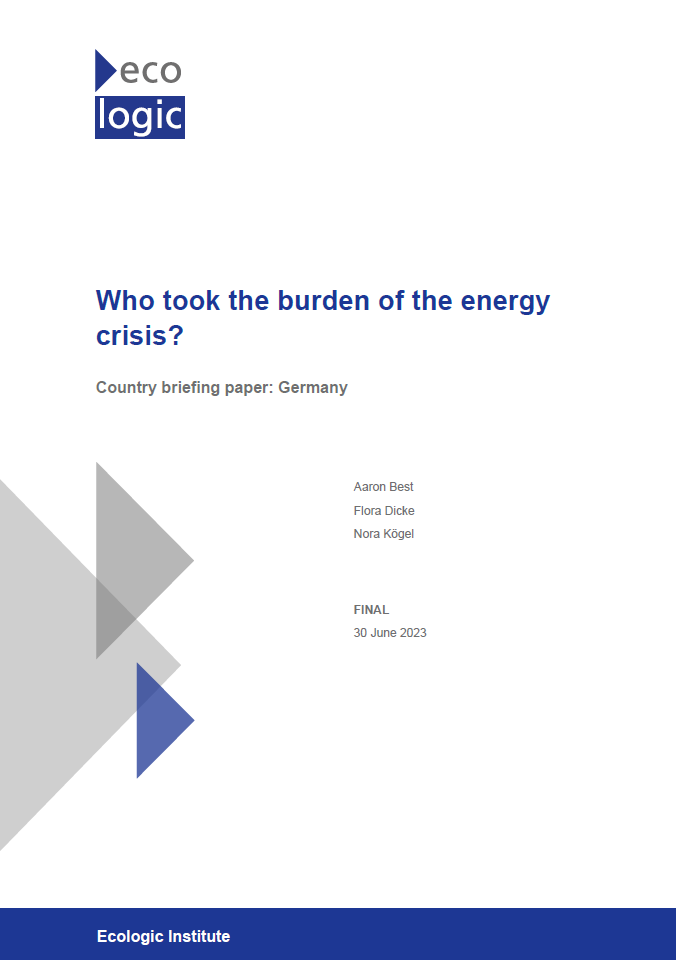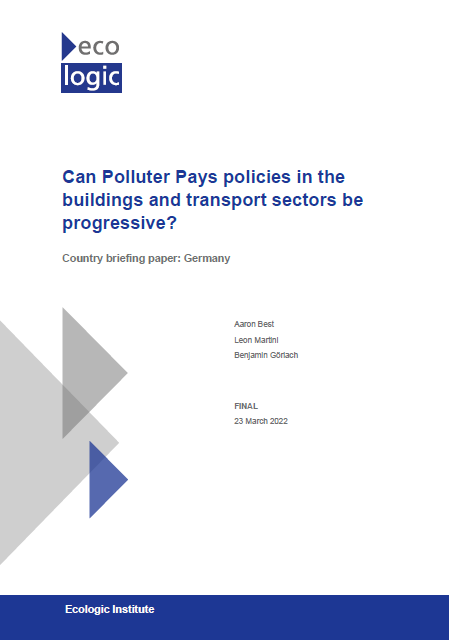Who Took the Burden of the Energy Crisis?
Country briefing paper: Germany
- Publication
- Citation
Best, Aaron, Flora Dicke and Nora Kögel (2023): Who took the burden of the energy crisis? Country report: Germany. Ecologic Institute, Berlin.
Households across Germany felt the weight of 2022's energy crisis, grappling with a dramatic increase in energy prices. Overall energy costs in Germany surged by 31% in 2022 compared to the previous year. This escalation was not isolated, with energy costs rising by 33.2% across all EU member states.
Welfare impacts
The surge in energy prices in 2022 impacted welfare negatively across all income groups in the EU, with adverse impacts most severe for the poorest 10% of households, which witnessed a welfare loss of 3.7%. These losses gradually diminish for higher-income households, culminating in a 2.2% welfare loss for households with incomes in the top 10%.
Overall, the net effect of the price shock in Germany and the policy response of the German government resulted in average welfare losses of 2.9% in Germany for 2022, just below the EU member state average of 3.0%. Consistent with differences in energy-use patterns by household type, welfare losses were higher for rural households as well as male-headed households.
Germany’s policy response
To combat the adverse impacts of the 2022 energy crisis, Germany passed three major relief packages in 2022:
- Package 1 (February 2022): The first package included tax-relief measures targeted at citizens with lower and middle incomes.
- Package 2 (February 2022): The second package focused on direct-income support and measures to reduce transport costs.
- Package 3 (September 2022): The third package contained a range of measures aimed at reducing energy costs and alleviating higher cost burdens on households.
Together, this comprehensive set of relief measures represents a significant investment of Germany’s public resources, totaling almost 300 billion euros.
Read more
For further details, read the full country briefing paper, which describes Germany’s policy response to the energy crisis of 2022 and provides a microsimulation-based summary of the distributional effects of energy price shocks on German households. The paper includes a scenario analysis of the decrease in the excise taxes on motor fuels, which clearly shows that a targeted and temporary redistribution of funds to vulnerable households would have yielded greater relief to poorer households than was achieved by decreasing the excise tax.
The paper serves as a companion paper to the report "Who took the burden of the energy crisis? A distributional analysis of energy price shocks" by IEEP and BC3, which examines the impact of the surge in energy prices on the welfare of European households and offers an assessment of the socio-economic consequences of energy price fluctuations in 2022.







